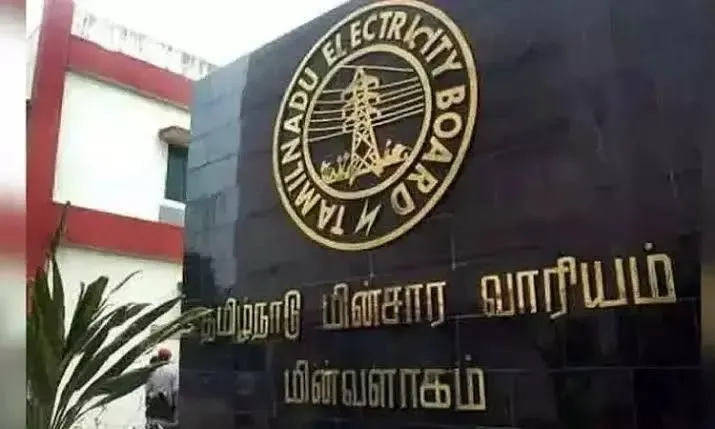Will There Be Delays in Monthly Electricity Billing in Tamil Nadu?

Synopsis
Key Takeaways
- Monthly billing in Tamil Nadu may face delays due to a phased rollout.
- First phase covers 1.44 crore smart meters.
- Second phase to follow after the first phase's completion.
- Job security concerns are a primary reason for the staggered implementation.
- Overall tariffs will remain unchanged despite billing adjustments.
Chennai, July 21 (NationPress) The Tamil Nadu government’s widely discussed electoral pledge to implement monthly electricity billing may encounter notable delays. This is due to the Tamil Nadu Power Distribution Corporation Ltd (TNPDCL) deciding to launch the ambitious smart metering program in two distinct phases, rather than the initially proposed single-stage rollout, as reported by officials on Monday.
As per TNPDCL representatives, the phased rollout will kick off with the deployment of 1.44 crore smart meters in the first phase.
This initial phase will target all low-tension (LT) three-phase users, single-phase consumers whose bimonthly usage exceeds 400 units, high-tension (HT) users, and distribution transformer meters.
The subsequent phase, which will encompass the remaining 1.60 crore consumers, will only commence after the first phase’s successful completion.
Initially, the smart metering initiative was designed to install 3.04 crore meters at an estimated cost of Rs 19,235 crore in one go.
Under the revised strategy, the first phase will involve 93.59 lakh single-phase meters and 45.57 lakh three-phase meters for LT consumers.
The second phase will introduce an additional 1.57 crore single-phase meters and 3.90 lakh three-phase meters.
This staggered implementation approach aims to mitigate resistance from employee unions, especially regarding concerns over job security for meter readers.
During this transition, manual readings will still be conducted for non-smart meters, causing a delay in the shift to monthly billing.
S. Kannan, the treasurer of the Central Organisation of Tamil Nadu Electricity Employees, expressed support for the two-phase strategy.
He emphasized, "It is a common misunderstanding that monthly billing will lead to reduced electricity expenses. While the slabs will be halved, the tariffs will essentially remain unchanged. Additionally, free electricity will be reduced from 100 units bimonthly to 50 units monthly," he explained, noting that many political figures advocating for monthly billing lack awareness of the tariff system's practical effects.
Meanwhile, Tamil Nadu Generation and Distribution Corporation (TANGEDCO) has re-issued tenders in March across six packages covering all 12 distribution zones.
This represents the third attempt, following previous cancellations due to high pricing and procedural challenges.
In one case, a power company submitted an excessively high quote for one of the packages, resulting in its rejection.
The smart metering project is being executed under the Union government's Revamped Distribution Sector Scheme and will adhere to a Design, Build, Finance, Own, Operate, and Transfer (DBFOOT) model.
According to the agreement, chosen Advanced Metering Infrastructure service providers will install meters within 27 months of signing the contract and will maintain them for 93 months.
TANGEDCO will reimburse the costs on a per-meter, per-month rental basis over a decade.









